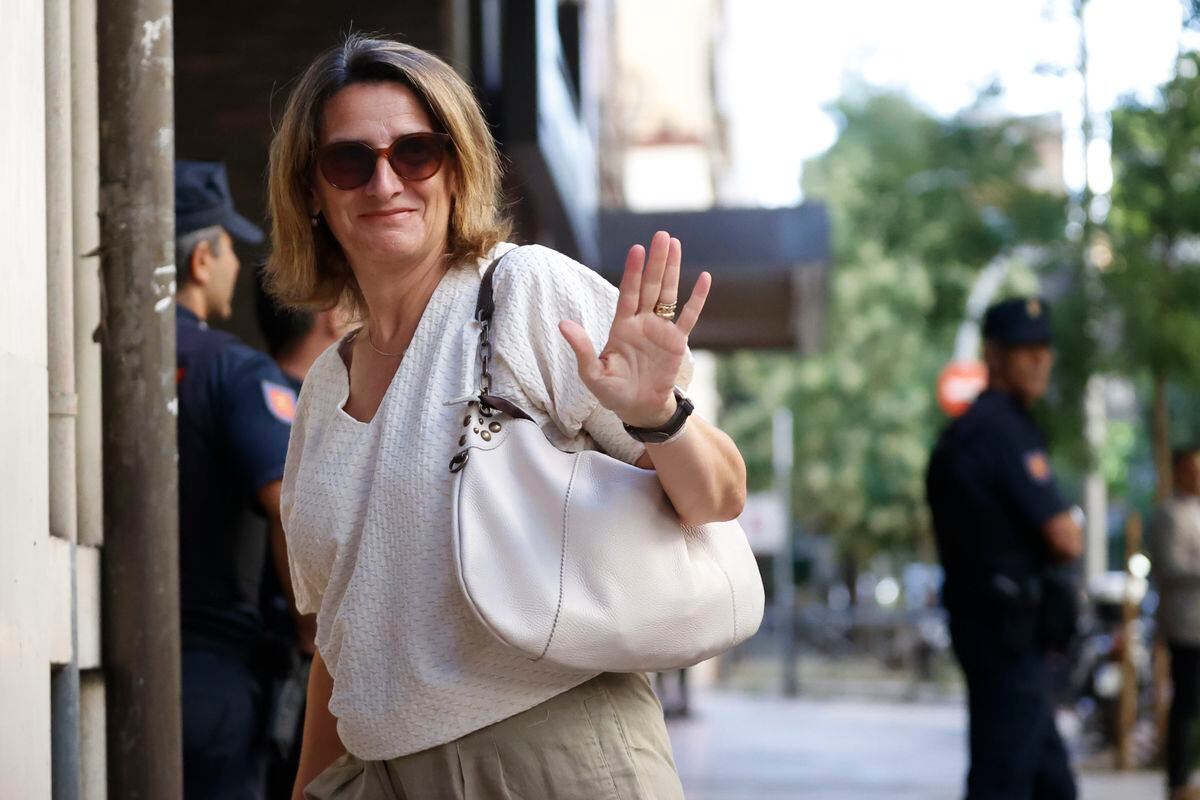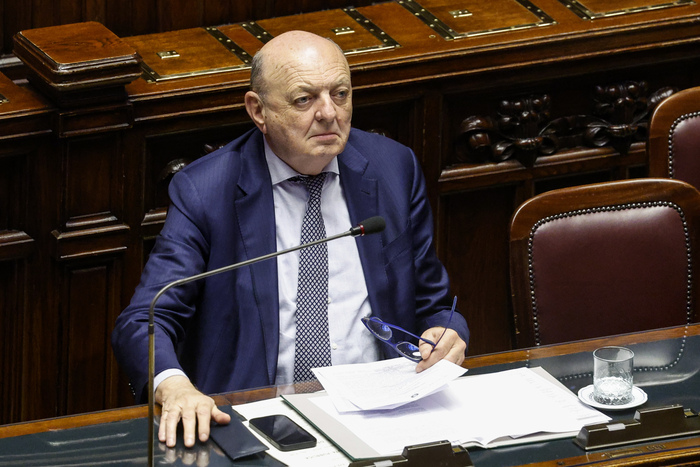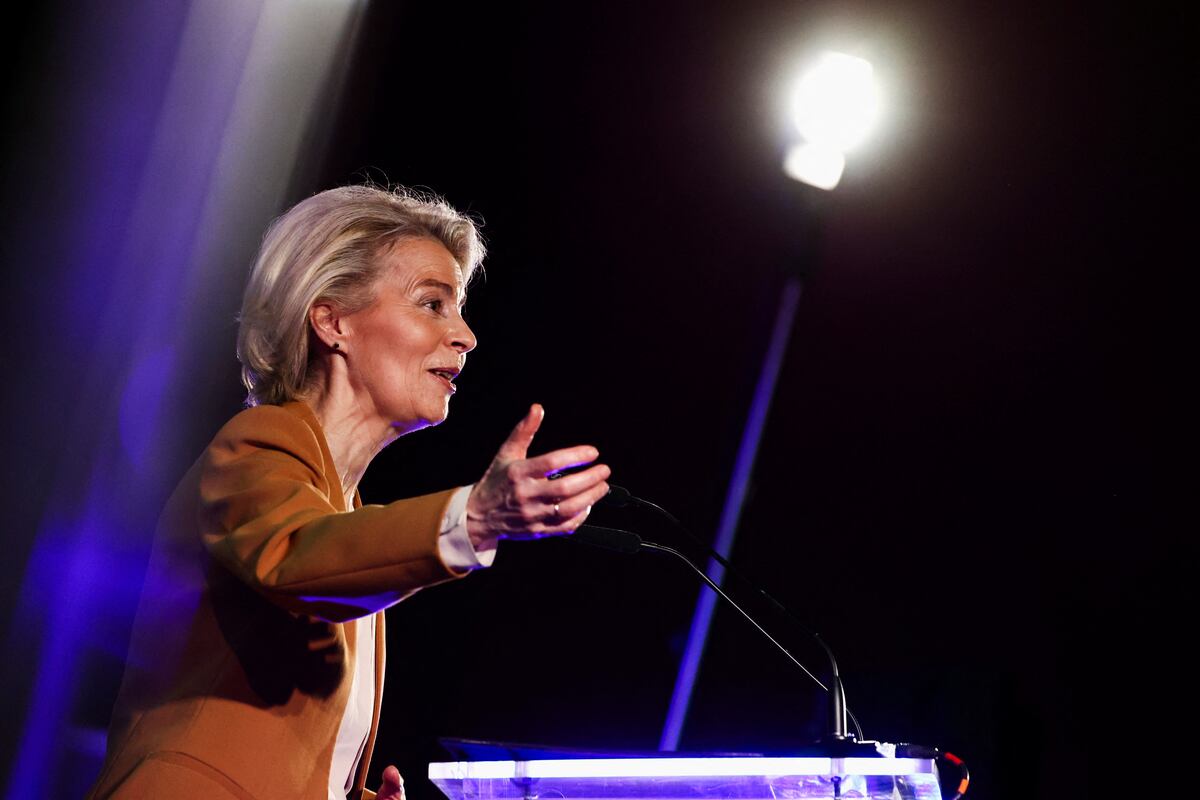The Minister for the Spanish Ecological Transition, Teresa Ribera, arrives in Brussels this Tuesday on a war footing against the energy saving plan of the European Commission.
The delegation headed by Ribera hopes to achieve a relaxation of the project that allows Spain to make a much smaller restriction than that demanded by Brussels to face the energy crisis and Russia's threat to cut off natural gas supplies.
The European Commission has demanded a 15% cut for all countries, but the negotiations in the last hours have already introduced some flexibility and the next regulatory project contemplates softening the objectives according to the circumstances of the Member States.
Spain and Portugal, which due to their geography and few interconnections could be considered an
energy island
, are included in that group because they would be offered the possibility of a minor cut if they show that they use part of their gas infrastructure to send this hydrocarbon to other countries in the EU.
Spain believes that it will be able to achieve an exception that will leave the country cut by between 5% and 10%.
With the background scenario of the Kremlin's wavering threat to close the gas tap to Europe this winter and the announcement this Monday - coinciding with the debate on the European Commission's savings plan - that Gazprom will further cut supplies pumped by Nord Stream 1 for "maintenance work" but with criticism from several Member States against a plan that they have considered unfair, the EU now aspires to a text that brings the largest possible number of partners on board.
And it will try to achieve this by drawing up a tailor-made savings suit that indicates that everyone must do the maximum possible.
The European Commission's proposal had sparked great controversy in Spain, Portugal, Poland or Ireland, who criticized that the savings plan drew a clean slate for all the Member States without taking into account the specificities of each country or their dependence on gas. Russian.
Spain, which led the critical sector with the initial proposal, also complained about the lack of consultations prior to the proposal.
And the discomfort has been amplified by the impression – shared in other capitals – that Brussels was taking sides with Germany, a country highly dependent on Russian gas that has stood out these years for its lack of reforms to disengage from cheap hydrocarbon supplies. but controlled by the Russian president, Vladimir Putin.
The Commission's plan, which made no reference to the energy
mix
of each Member State, has caused such unease in some countries that it has threatened to inflict a deep wound on the unity of the community club - which since Russia launched the large-scale war against Ukraine has been characterized by giving a strong and homogeneous response.
Spain has stressed that with its characteristic of being an
energy island
—the country has two channels with France and several regasification plants—, complying with the 15% savings set by the Commission would mean self-inflicted damage that would not later translate, moreover, into solidarity shipments to others Member States, diplomatic sources point out.
The Government of Pedro Sánchez also maintains that with the plan for a linear cut of 15% of gas consumption (first voluntary and later, if the European Commission considered it, mandatory) Spain could be forced to stop even part of the industry, since to reach that figure of savings it would not be enough with the efficiency measures alone.
Several diplomatic sources affirm that an agreement is expected at the EU Energy Ministers' Council on Tuesday.
Spain will accept the imposition of a percentage reduction in consumption, say Spanish sources, because it even considers it positive to send a signal of contention to consumers.
However, he maintains that he cannot achieve the 15% cut.
Sources close to the negotiation point out that Teresa Ribera's team calculates that Spain will obtain an exception that could leave its cut in consumption between 5% and 10% that the Commission initially offered, which in last week's proposal already included a 'Iberian exception'.
With more flexibility, diplomatic sources say, Spain would endorse the proposal.
Spain consumes an average of 22,900 million cubic meters (from August to March) of gas.
With the 15% set by Brussels, it should cut 3.4 billion cubic meters.
The European Commission had offered to lower the savings to 2,900 million cubic meters, but Spain is fighting to lower it a little more, to around 1,700 million.
European solidarity
Despite criticism of the already crystallized plan, the need to implement contingency and energy saving measures was already agreed, however, at a European Council on May 31, when pressure from the Kremlin, which has been using the gas as a weapon, they were already highly visible.
In that council, the spirit of European solidarity was already discussed.
After the controversy aroused by the savings plan presented last Wednesday —which opted to mutualise the blow of the cut—, community sources point out that the matter is not to judge which countries have done it well or badly, because if Moscow cuts the tap the problem It will not only be about energy policy but about the common market: the blow of the lack of supplies, cuts and cries in the industrial chain of one country will have reverberations in the rest.
Brussels also maintains that with the linear snip, although the gas saved cannot be sent to another due to the lack of interconnections, if consumption is reduced, prices will fall because the pressure on the markets will decrease.
Furthermore, they say, even those that do not export gas directly from Russia release gas from other suppliers for the rest (if Spain consumes less Algerian gas, for example, there is more for Italy).
Brussels has estimated the essential gas savings at 45,000 million cubic meters not only to weather the coming winter, but to have certain guarantees of supply in 2023. Now it fears that with the amendments to the plan the savings will be reduced and it will remain in about 38,000 million cubic meters.
The amended draft of the plan, seen by EL PAIS, also introduces other changes and gives more power to the European Council, compared to the Commission.
To declare the state of alert, which contemplates making the percentages of voluntary savings and solidarity savings remittances binding, it is necessary that a simple majority approve the Commission's request or that five countries request it.
The changes in the plan also attend to the countries that, like Spain, requested more time and extend the date to present the contingency plan from September 30 to October 31.
As winter approaches and the Kremlin pulls the gas lever, the prospects of an energy crisis are taking shape.
This Monday, Gazprom's announcement that it will cut pumping through the Nord Stream 1 gas pipeline to a fifth of its capacity, has given yet another argument to Brussels that the right thing to do is to put itself in the worst case scenario and design a plan of contingency that allows to react before a total cut.
“This is exactly the type of scenario that the president [Von der Leyen] was referring to last week and that led her and the college of commissioners to make the solidarity proposal to save gas,” said the Commission spokesman. , Eric Mammer, who has stressed that he hopes that the council of ministers on Tuesday will give an “adequate response”.
50% off
Exclusive content for subscribers
read without limits
subscribe
I'm already a subscriber



/cloudfront-eu-central-1.images.arcpublishing.com/prisa/JNKEYSPVIXFSA66UHYKQUNTSQA.jpg)

/cloudfront-eu-central-1.images.arcpublishing.com/prisa/TJIZLZ7VXOV4MBYNPTH2DNQ7CI.jpg)
/cloudfront-eu-central-1.images.arcpublishing.com/prisa/5C635RG6YBGDPHDHXEOSQWFQ2Y.jpg)








